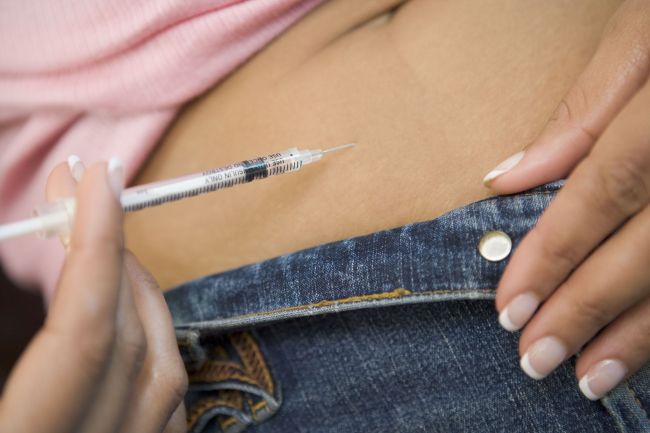Lee Soo-jin (not her real-name), a single woman in her mid-30s in Seoul, recently decided to freeze her eggs, should she later want to have a child. She’s not currently dating anyone and doesn’t have any plans to get married in the near future.
“I have high professional ambitions, and I’m passionate about my work,” she said through a representative at the Cha Fertility Center, where she underwent the procedure. “Right now I’m not sure if I ever want to get married or have children. The procedure is more like insurance in case I change my mind later in life. I wanted to leave this option open for myself.”
Lee is among a growing number of South Korean women who choose to freeze their eggs in case they want to become pregnant later on in life.
 |
| In order to retrieve eggs for freezing, a patient must undergo the same hormone-injection process as in-vitro fertilization which can cause side effects such as hot flushes and headaches. 123RF |
According to the Cha Fertility Center, which is one of the few medical institutions that run an egg bank in South Korea, the number of single women who froze eggs at the hospital increased dramatically from 2014-2015, from 56 to 128. In 2013, only 30 single women underwent the same procedure at the center.
Among the 128 women, the largest proportion of them, 36 percent, were those aged 35-40 who had high-paying professional jobs. Those in their 40s accounted for 35 percent. Notably, single women in their 20s also accounted for 14 percent of all women who opted to freeze their eggs at the medical institution.
As more women are postponing having a family as they focus on their careers, the number of pregnancies after age 35 has been increasing here, which is considered one of the biggest contributing factors to the rise of preterm births in the country.
Last year, women aged 35 and older accounted for 24 percent of all women who gave birth. On average, Korean women gave birth to their first child at the age of 31.2 last year, a 0.24 year increase from the 2014.
In 2013, Korean babies born before the 37th week of pregnancy which died from premature birth complications accounted for 59.6 percent of infant mortality in the country.
“I definitely want to consider the option of freezing my eggs when I turn 35 and have no prospects for marriage,” said Han Ji-yeon (not her real name), a single 31-year-old woman in Seoul.
“I think it may be a better option than going through a high-risk pregnancy when I’m in my 40s. Right now, I guess I’m just not that desperate.”
Egg freezing has been traditionally used by women diagnosed with cancer who want to preserve their fertility before undergoing potentially sterilizing chemotherapy. In order to retrieve eggs for freezing, a patient must undergo the same hormone-injection process as in-vitro fertilization. The only difference is that the retrieved eggs are frozen for a period of time, instead of being fertilized and transferred to the uterus as embryos.
The Health Ministry currently does not have a list of all egg and sperm banks in the country, as South Korea does not have any legislation that is specific to freezing one’s own eggs or sperm for later use, according to Sohn Tae-won from the ministry’s Division of Bioethics and Safety.
However, there are a total of 144 medical institutions in Korea that are capable of storing artificially fertilized embryos for up to five years, he said.
The egg bank at the Cha Fertility Center said it can store an egg up to 10 years. The procedure is currently not covered by the National Insurance Service.
While the numbers were not formally confirmed, it generally costs about 500,000 won ($405) for a woman without any preexisting health conditions to undergo the hormone-injection process as well as the egg retrieval. “It can cost a lot more for cancer patients and those with a medical history of infertility,” a source said.
Kim Ja-yeon, a gynecologist at the Cha Fertility Center, said egg freezing can be a great option for future parents who would like to avoid problems resulting from infertility from advancing age.
The number of Koreans who sought medical help for infertility has increased significantly in recent years, from 178,000 in 2007 to 215,000 in 2013. “As long as a woman has her healthy egg frozen before reaching age 37, it’s still possible to get pregnant without a lot of problems,” she said in a statement.
However, Choi Doo-seok, a gynecologist at the Samsung Medical Center in Seoul, said egg freezing is not always safe. The use of a needle to collect the eggs can possibly cause infection, bleeding and damage to the bladder and bowel.
“Eggs are not as easy to freeze as it is to freeze sperm and embryos, and it may result in decrease in quality after they are thawed,” he said. “Just as IVF has side effects, so does egg-freezing. The two procedures are virtually the same. Women should pursue natural pregnancies before considering this option.”
By Claire Lee (dyc@heraldcorp.com)

